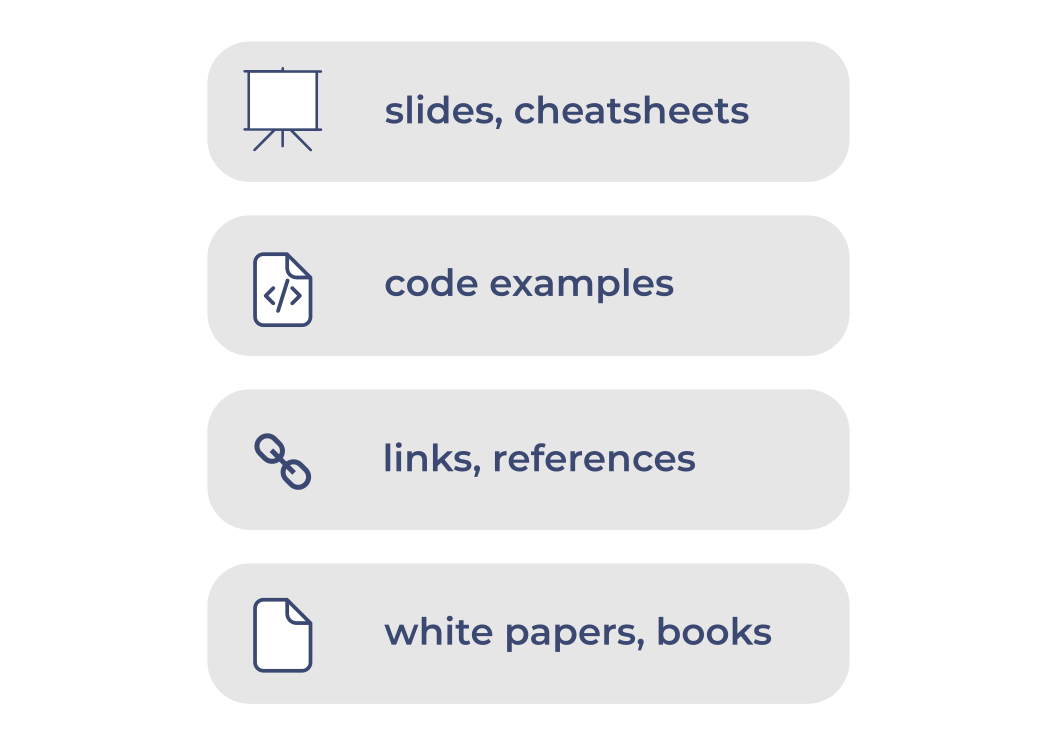Docker history
Linux containers and Docker inception.
Docker has taken our industry by storm. Hardly anyone can ignore the usefulness of containerized applications. Containers allow encapsulating part of your system configuration making it easier to distribute and manage applications at scale.
This is a 2-day practical workshop that covers Docker functionality, use cases and deployment scenarios. It is targeted at software developers and system administrators willing to integrate containers into software delivery and maintenance processes.
The workshop includes a lot of hands-on exercises that are based on real-life experience. All participants will receive cheatsheets as well as get access to online slides and all the code.
13 modules
easy
2 days
Included
Linux containers and Docker inception.
Host, engine, daemon, client, image, container, layer.
Natively, inside virtual machine or with the help of Docker Toolbox.
Exploring Docker Hub, pulling images from Docker Hub and private registries, exploring local image cache, loading images into local image cache
Long running containers, throw-away containers, exposing ports, setting environment variables, sharing data with the host, setting limits.
Listing containers, status and resource usage, standard streams, stopping containers, killing containers, pausing containers, removing containers.
Images from existing containers, building images using Dockerfile, selecting base image, defining image parameters, removing images.
Through a registry or as a TAR archive, squashing images, minimizing dependencies.
Integrating Docker containers into a software delivery pipeline.
Creating networks and "linking" containers, handling communication with the host, port fowarding, managing different network types.
Creating Docker Compose configuration for defining containers, networks and volumes.
Using remote Docker engine, setting up Docker Swarm, configuring services and stacks, load-balancing.
Monitoring Docker host, visualizing image and container layer dependencies, managing container logs.

